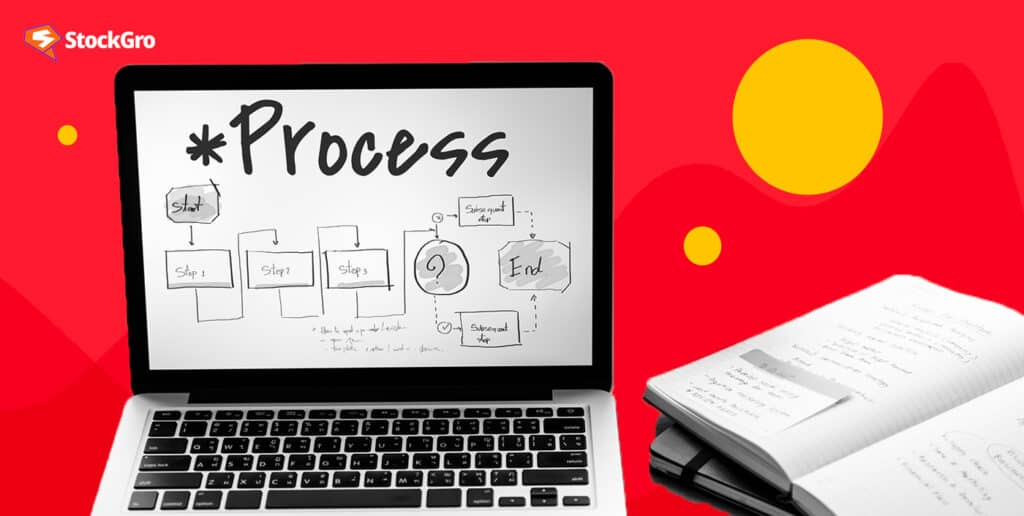
Getting a loan for your business involves many steps – finding a good lender, selecting the best loan type, preparing documents correctly, and more. It can get confusing. However, learning the step-by-step process can make it easier to get funding.
This article explains the loan application process for Indian small businesses. It explains step-by-step what to do – check if you are eligible, choose between different loan products, get all your documents in order, and fill out the application form correctly.
Following the useful advice here will help you, as an Indian business owner, apply for funds smoothly and get approval faster.
Also read: Financial Literacy and Small Business Success: Essential Skills
Small business loan application process
Organisations may save time and effort by researching the procedures required to secure a business loan in advance. This, in turn, makes it more likely that a business will get a loan. Here are some of the steps you need to take before applying.
- Find out how banks take you into account
Spending some time researching how Indian banks and government agencies will assess your loan application can save you a lot of hassle and time once the application process begins.
Credit scores:
Credit scores are necessary to make sure that your business can pay back the loan on time based on the lender’s suggested schedule, given the company’s payment history.
Lenders may be wary of extending loans to those with a history of late or missing payments. People who are struggling to get their credit score back up should consider other loan options and work on improving their scores.
Credit history:
To determine whether you are qualified for a business loan, banks look at your credit history in detail. Additionally, financial institutions have access to the complete history of your credit usage that credit bureaus and other providers have provided.
Collateral:
While many government programmes do not demand collateral, the majority of company loans provided by financial institutions, conventional lenders, credit unions, and even certain government organisations do require collateral.
Therefore, small businesses should take measures to ensure they have collateral to provide as a guarantee to advance in the application process.
Also read: Scaling Your Side Business: Strategies for Growth
- Select the proper loan or financing option
You, the owner of a small company or startup, are rightfully responsible for selecting the best financing for your needs. If you want to get a business loan that works with your company’s credit, you need to be well-versed in all your options, including:
Government loan schemes:
The Indian government has launched several schemes for small and medium businesses as well as for women entrepreneurs. Some of them are the MUDRA loan, the stand-up India scheme, the National Small Industries Corporation subsidy, MSME business loans in 59 minutes, and more.
Bank loan:
Traditional Indian banks have high lending rates, so they should be the last option to consider. If you currently carry out business with a bank, the company’s line of credit or term loan will be low-interest.
Term loan:
Companies seeking business loans usually choose term loans. Loans are dependent on your company’s credit history. Term loans are advantageous since the lender pays the loan amount in one lump sum after approval.
Working capital loan:
Working capital loans help small businesses manage cash flow when they lack funding for everyday operations.
Apart from these, businesses may also avail of startup loans, invoice financing, and equipment financing as business loans.
- Select a lender
Enterprises should choose a lender that can finance them in a manner that benefits their business, as various lenders provide different kinds of services. Some of the most popular lending categories include direct lenders, Peer-to-peer, and online lending marketplaces.
- Collect your required documents
All required paperwork must be readily available to the borrower. Keep in mind that missing or incorrect information might lead to unnecessary holdups in the loan distribution process.
- Check out the EMI
Always determine the exact financial needs of the business before submitting a loan application. The extra money spent could lead to further debt. Inadequate funding might also lead to complications.
- Submit your application
Submitting a fully completed loan application form is the last stage in the business loan application process. The steps for this are pretty straightforward. In the case of an online loan application, all the necessary information can be put in your mobile device; in the case of an offline loan application, all the required paperwork can be filled out on paper.
Business loan application documents
| Document type | Document name | Description |
| Identity proof | Aadhar card, passport, PAN card, and voter card | The applicant’s identification may be confirmed using any of these documents. |
| Address proof | Aadhar Card, Passport, Voter ID, Utility bills, Property tax receipt, Lease agreement or rent agreement | Any one of these documents can be used to verify the address of the applicant or the business |
| Business proof | Business registration certificate, Business licence or permit, GST registration certificate, Shop and Establishment Act certificate, MSME registration certificate | These documents are required to prove the existence and legality of the business entity. Some of them may not be applicable, depending on the nature and size of the business |
| Business proof (Partnership, LLP, or LLC) | Certificate of Incorporation, Memorandum of Association (MOA), Articles of Association (AOA), Partnership deed, and the documents required for business proof. | It is necessary to have these papers to show that the business exists and is valid. Given the specifics of the company and its size, some of these may not be relevant. |
| Financial papers | Audited or unaudited financial accounts, ITRs, financial statements, sales and revenue estimates. | These records show the company’s financial stability. |
| Loan application form | A lender-provided loan application form that has been thoroughly filled out. | This document is required to apply for the loan and provide the basic information about the applicant and the business. |
| Business strategy | A detailed business plan that contains company goals, market research, service or product outline, sales and marketing methods, and loan purpose. | This document proves company and financing viability. |
| KYC documents and photographs | Verification of the identity and residency of all founders, associates, or administrative officials. | Business managers and owners must provide these papers to prove their identity and address. |
| Verification of ownership or lease | Ownership or lease documentation for commercial premises. | To prove who owns or occupies the commercial property. |
Apart from these documents, business owners might also submit papers regarding collateral, guarantor, and exit loan, if applicable.
Also read: Debt management: Advanced strategies for paying off debt quickly
Conclusion
No two businesses are the same. As a result, no one other than the business owner can determine the most suitable terms of a business loan. However, it is always a good idea to put out a business plan and research various lenders’ terms and conditions before applying.
Indian MSMEs and startups can easily get business loans by following the steps explained here clearly.

